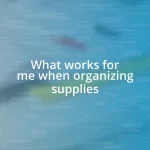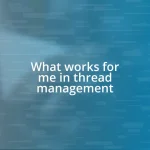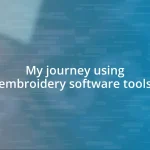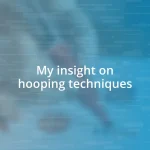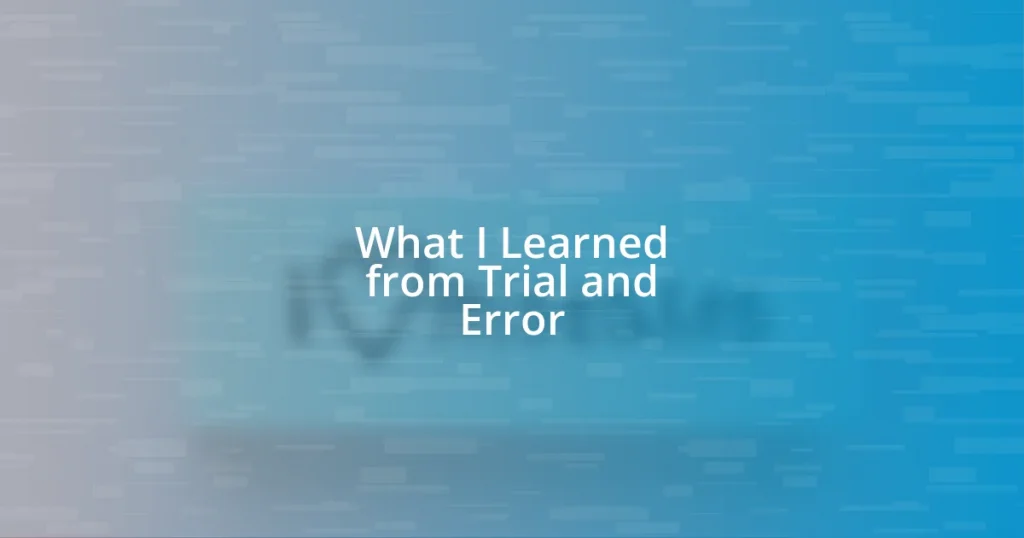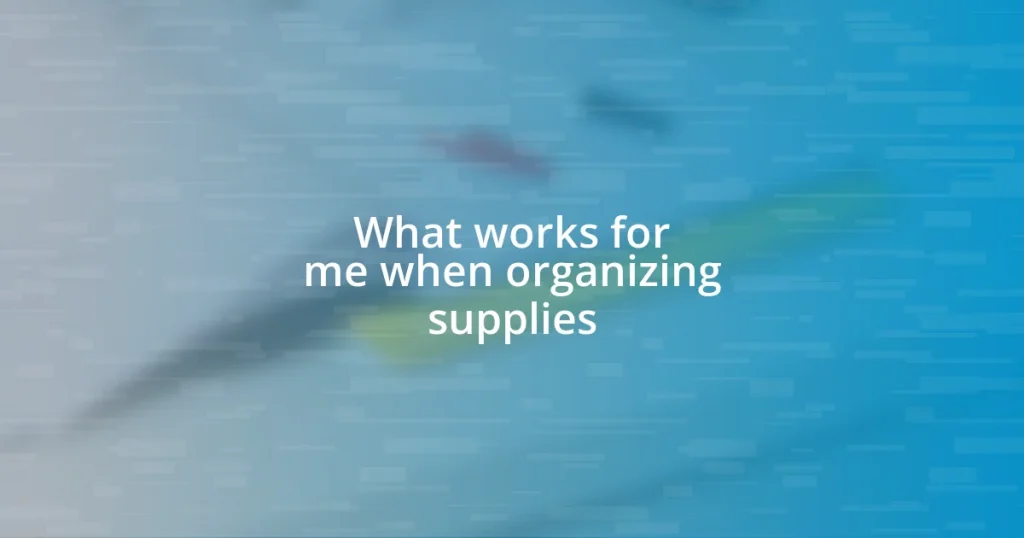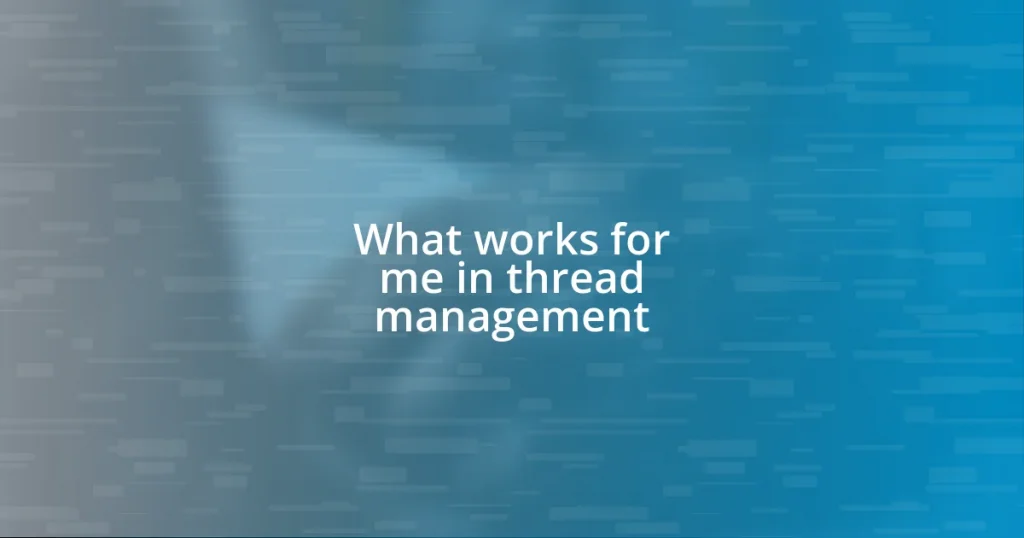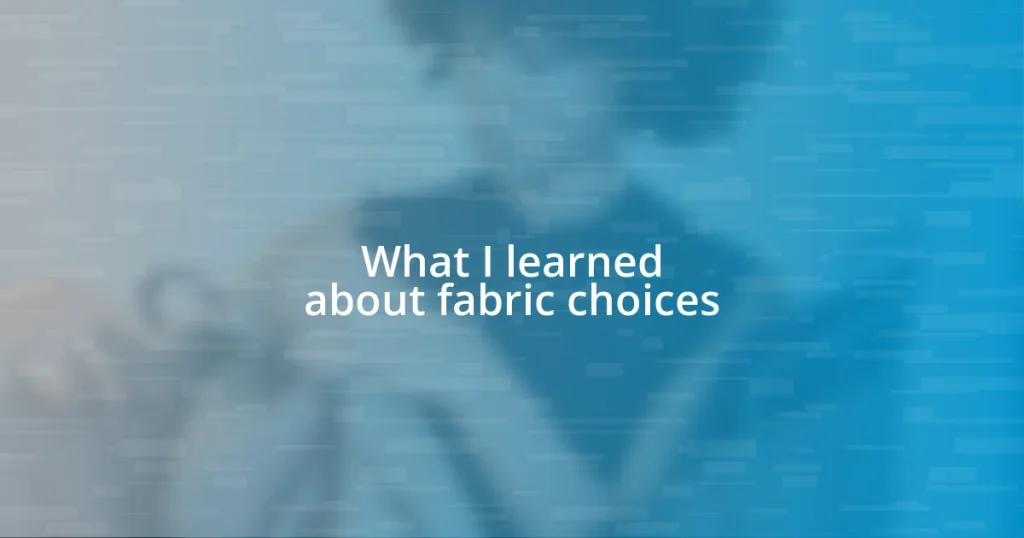Key takeaways:
- Hands-on experiences and failures provide invaluable lessons that lead to personal growth, confidence, and mastery in various skills.
- Implementing effective experimentation strategies, such as setting clear goals and embracing feedback, enhances learning and drives improvement.
- Reflecting on past challenges and applying learned lessons cultivates resilience and inspires innovative approaches in future endeavors.
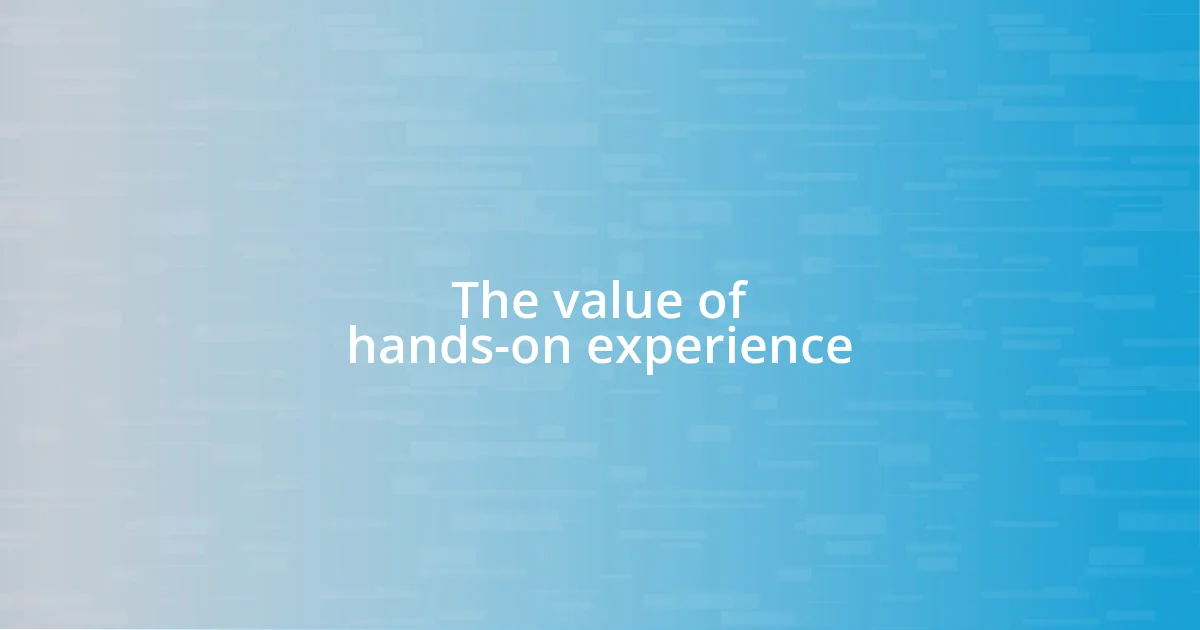
The value of hands-on experience
Hands-on experience teaches lessons that no textbook can capture. I remember a project where I eagerly jumped into making homemade candles. Despite following directions meticulously, my first attempts were marred by uneven textures and awkward scents. However, each misstep revealed something new, like the crucial role temperature plays in melting wax. Isn’t it fascinating how our mistakes often lead to the most significant learning moments?
One time, during a group project in college, I took on the role of the team leader, driven by ambition but unaware of the complexities ahead. The excitement quickly turned into a challenge when I realized my lack of practical management skills. The experience was frustrating, but it taught me the importance of clear communication and delegation. Every mistake felt personal, yet it helped me grow. Have you ever faced a challenge like this that shaped your perspective?
What I cherish most about hands-on experience is its ability to instill confidence. After finally mastering my candle-making skills, I found a sense of accomplishment that theory alone could never provide. The joy of creating something tangible changes your perspective entirely. When have you felt that pride from an achievement born of your own hard work?
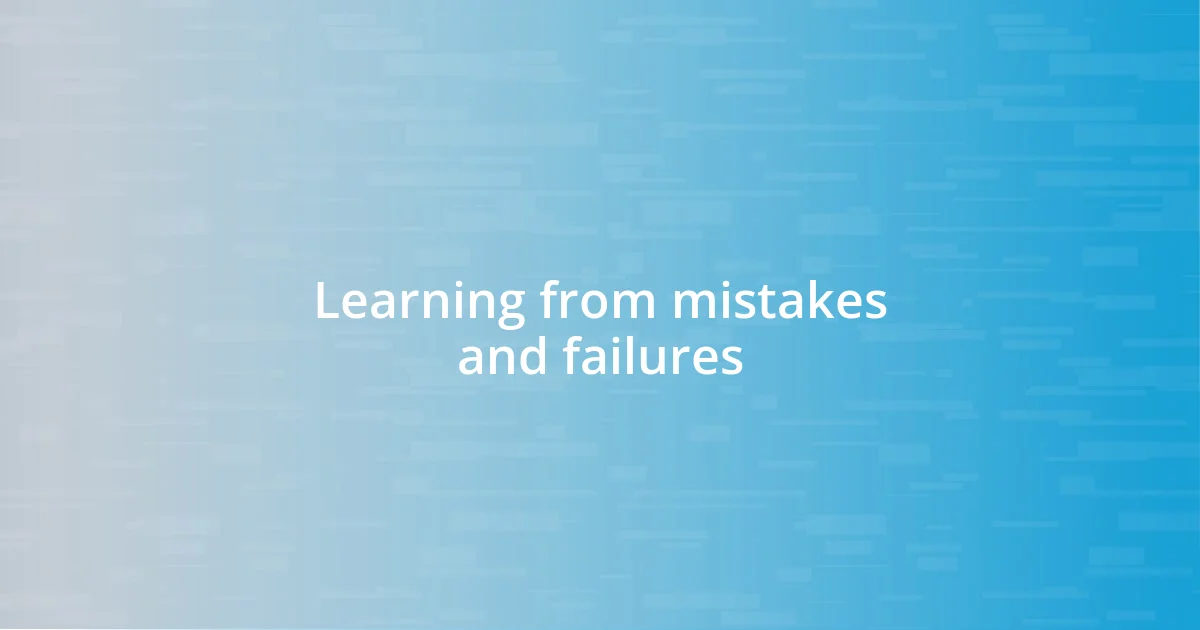
Learning from mistakes and failures
Learning from mistakes and failures is a profound journey. I vividly recall a time when I attempted to bake a soufflé for a special dinner. I felt confident, but I forgot the essential step of folding the egg whites properly. The result? A deflated, dense mess that looked nothing like the beautiful version I had envisioned. Instead of being discouraged, I viewed it as an opportunity. Each failed attempt nudged me closer to mastering the technique. Isn’t it amazing how a minor oversight can provide such valuable lessons?
Another time, I decided to delve into woodworking, eager to craft my first piece of furniture. I jumped right in without much prior knowledge. My initial chair wobbled terribly, the joints poorly fitted. At first, I was disheartened, but as I coaxed the pieces apart and began again, I realized the importance of patience and precision. Those frustrating moments taught me that every mistake can lead to a more profound understanding of the craft. Have you ever found yourself in a similar situation, where failure propels you to greatness?
What truly resonates with me is how failures become stepping stones, not stumbling blocks. After several baking disasters, I eventually created a soufflé that not only rose perfectly but melted in the mouth. That sense of victory didn’t just come from the success itself but from knowing the journey, filled with trials, was worth every second. What triumphs have you experienced after overcoming your failures?
| Experience | Key Learning |
|---|---|
| Baking a Soufflé | Understanding the significance of technique and details |
| Woodworking | Patience and precision are essential for success |
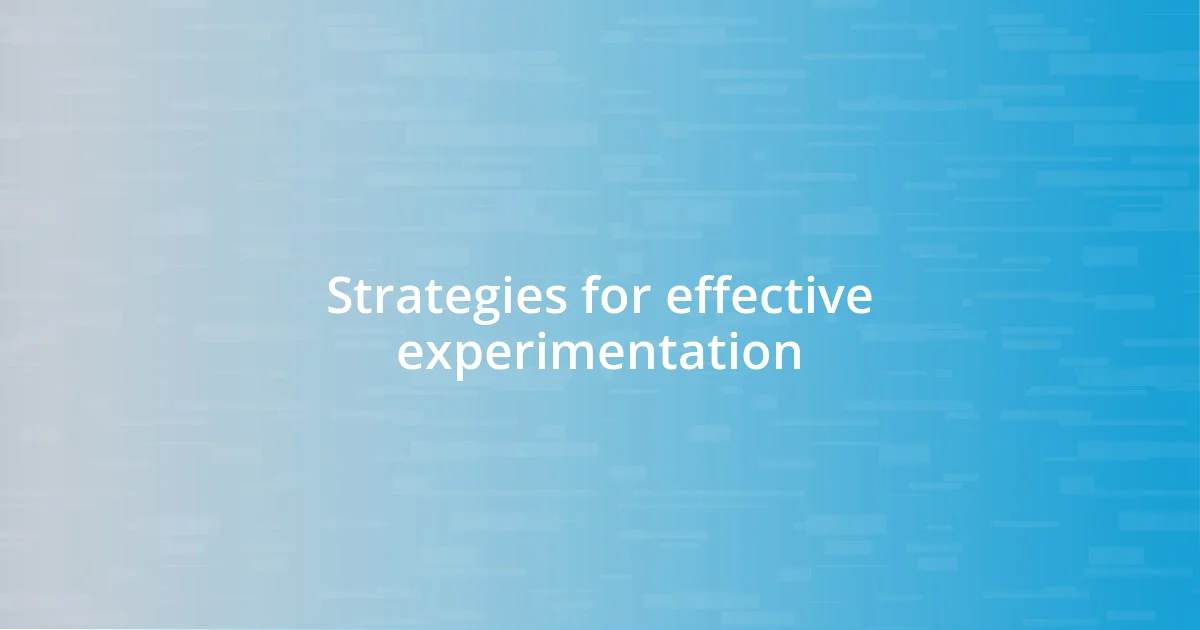
Strategies for effective experimentation
Testing ideas is vital for success. In my experience, setting distinct goals for each experiment keeps you focused and allows for better evaluation of results. When I was exploring the world of photography, I initially got lost in the myriad of settings on my camera. By committing to one technique at a time—like mastering exposure or understanding composition—I found clarity and steadily improved my skills. It’s all about narrowing your focus to enhance your learning.
Here are some strategies I’ve found beneficial for effective experimentation:
- Establish Clear Goals: Define what you want to learn before starting. This direction helps you to measure progress and understand outcomes.
- Take Small Steps: Instead of attempting a massive project, break it down into manageable parts. This approach reduces overwhelm and allows for gradual improvement.
- Document Everything: Keep a record of what you did, what worked, and what didn’t. Reflecting on this during future experiments can reveal patterns and insights.
- Embrace Feedback: Sharing your progress with others can provide valuable perspectives you might not see on your own, enriching the learning process.
- Stay Open-Minded: Be willing to adapt and change your approach based on what you learn along the way. Flexibility often leads to unexpected breakthroughs.
Through these strategies, the process of experimenting becomes not only more effective but incredibly rewarding. It’s truly amazing how small changes in approach can lead to significant growth and understanding.
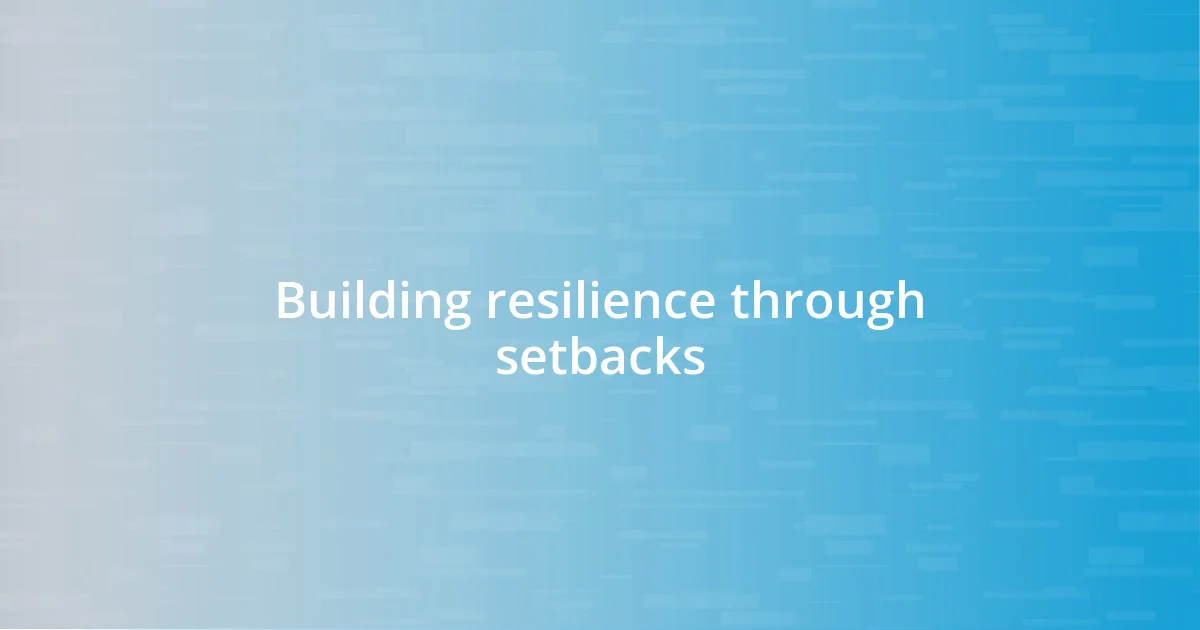
Building resilience through setbacks
Setbacks can feel crushing at first, yet I’ve discovered they are often the best teachers. When I launched my first online course, I was filled with excitement and anticipation. Unfortunately, the initial enrollment numbers were dishearteningly low. Instead of letting that discourage me, I took a step back and analyzed what went wrong. That reflection led me to adjust my marketing strategies and refine the course content. Have you ever faced a similar disappointment that turned into a lesson in disguise?
Looking back on other setbacks, I realize they foster resilience in ways I never expected. After a significant project at work fell flat, I was tempted to dwell on my missteps. But rather than wallowing in regret, I gathered feedback from my team. That act of seeking input not only boosted my confidence but also provided invaluable insights for future projects. How often do we underestimate the power of collaboration after a setback?
Every obstacle I’ve encountered has become a stitch in the fabric of my resilience. I remember a particularly tough period in my career when I had to pivot my entire approach after a major rejection. It felt daunting, but I embraced the challenge, experimenting with new ideas and learning to trust my instincts. Each setback, I realized, wasn’t just a hurdle; it was a chance to strengthen my resolve and refine my path. Isn’t it liberating to think of resilience as a muscle that grows stronger with each challenge faced?
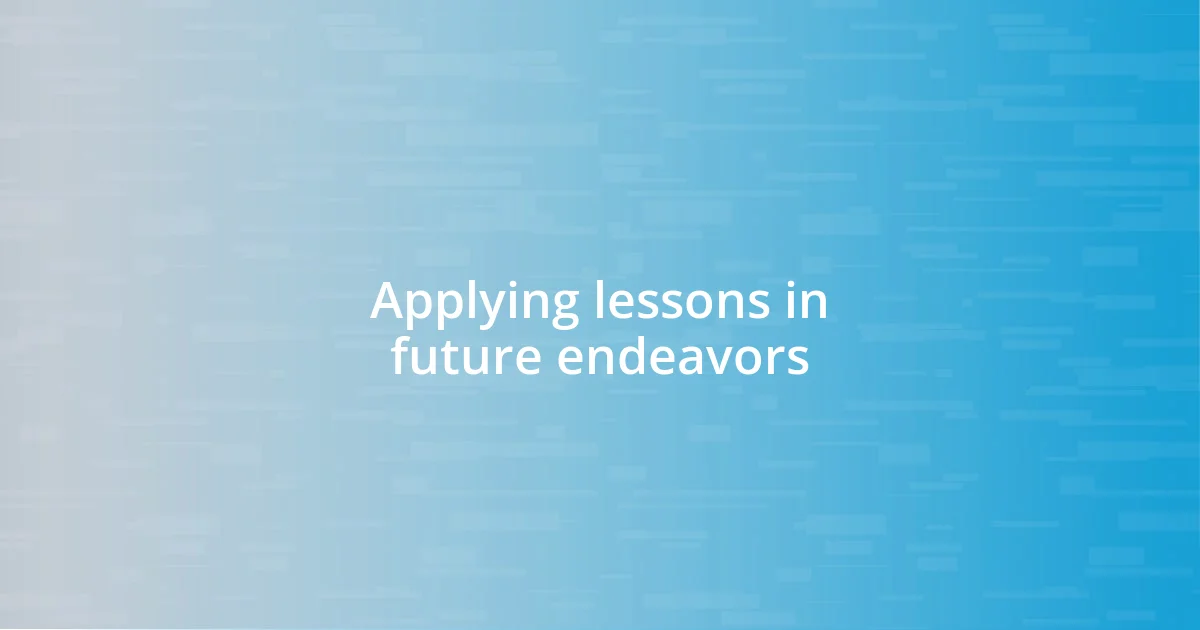
Applying lessons in future endeavors
Reflecting on my past experiences, I believe that applying lessons learned from trial and error significantly shapes our future endeavors. After struggling with social media engagement for my blog, I realized I wasn’t connecting with my audience. By experimenting with different content styles, like incorporating storytelling and personal anecdotes, I not only gained followers but fostered a community. Have you ever noticed how authenticity can resonate so deeply with others?
It’s fascinating to see how lessons learned can transform my approach in unexpected ways. For instance, while navigating a challenging project at work, I discovered the importance of seeking collaboration early on. Initially, I tried to tackle everything solo, which only led to burnout. By inviting team input from the start, I found renewed energy and shared vision, making the entire process smoother. Isn’t it interesting how a slight shift in perspective can lead to such profound changes?
Every insight I gained from my earlier misadventures serves as a guidepost for my future projects. I’ve made it a habit to revisit my notes whenever I start on something new, reflecting on both successes and failures. This practice not only helps me avoid previous pitfalls but also sparks innovative ideas based on what I’ve learned. Isn’t it incredible how the lessons of yesterday can ignite the creativity of tomorrow?

